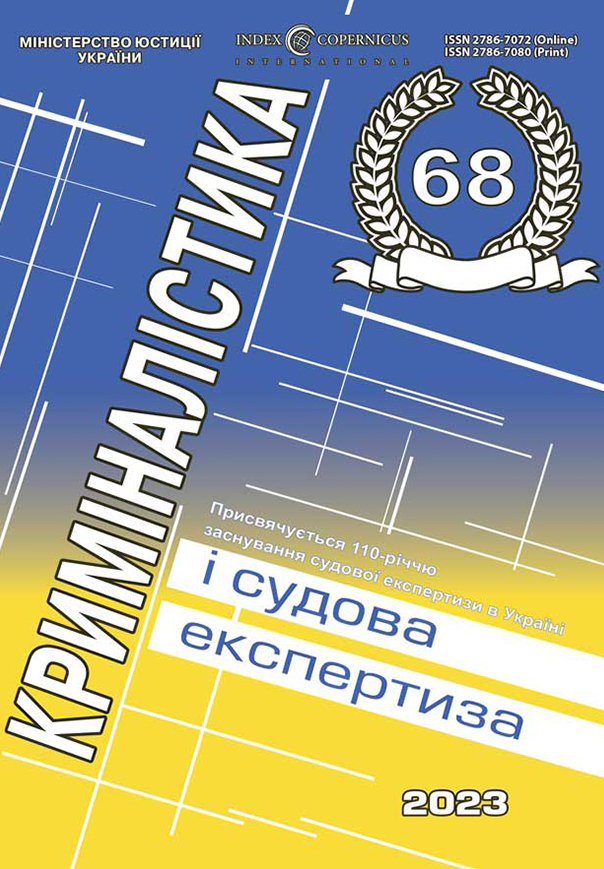DOI: https://doi.org/10.33994/kndise.2023.68.74
S. Yelenych
In the article, the development of the Odesa forensic school is considered in the context of the assets of the scientists of the Department of Forensics and the activities of the scientific centre of the National University «Odesa Law Academy».
Bibliographic studies of the system of higher legal education, the formation of the Odesa School of Law and the scientific heritage of its representatives are presented as a source of study of the Odesa Forensic School.
Attention is focused on the formation of forensic scientific schools in Ukraine, such as the All-Ukrainian Forensic School of Criminal Justice and the Odesa Forensic School on the problems of improving the methodology of investigating criminal offences and investigating criminal activity. Professor V. Tishchenko made a great contribution to the development of the Odesa forensic school.
The range of bibliographic sources for the thematic search for information on available documents in the fund of the scientific library of the university related to the author’s collections of publications of legal scholars is outlined, in particular the results of the scientific activity of scientists of the Department of criminalistics of the National University «Odesa Law Academy» on the study of the All-Ukrainian Forensic School of Criminal Justice.
The bibliographic resources that present the works of scientists of the Department of Forensics as a component of the source-based research base of the Odesa Forensic School and the history of the National University «Odesa Law Academy» have been systematized. Bio-bibliographic indexes are presented, which are dedicated to representatives of the Odesa Forensic School – V. Kolmakov (1913-1973) and scientists of the Department of Forensics of the university, such as V. Tishchenko, M. Shulha, O. Netudykhatka. The main goal of bibliographic resources is the systematization of information and the preservation of materials about the contribution of scientists to the development of science, the creation of author’s collections of legal scientists in the fund of the university’s scientific library.
Bibliographic and bio-bibliographic editions are a component of the source knowledge base for the research of the personalities of scientists of the Odesa Forensic School and the Odesa School of Law, on the one hand, the history of the development of legal science and education in Ukraine, on the other hand, legal scholars of the National University «Odesa Law Academy», as well as with these achievements in the field of bibliography of specialists of the scientific library of the university.
Key words: forensic scientific schools in Ukraine, Department of criminalistics of the National University «Odesa Law Academy», V. Kolmakov, V. Tishchenko, М. Shulha, О. Netudykhatka, bio-bibliographic indexes.

